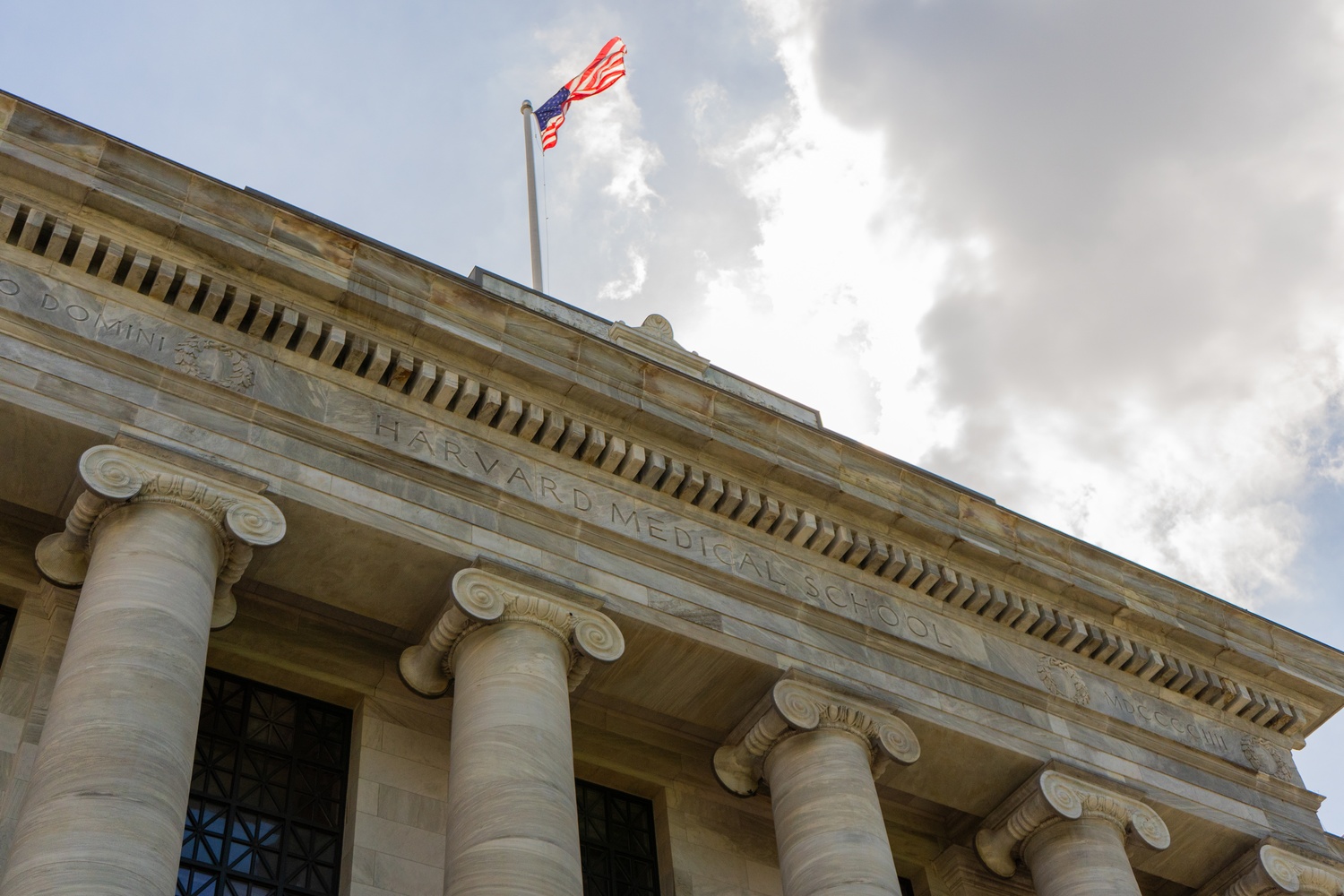
News
Summers Will Not Finish Semester of Teaching as Harvard Investigates Epstein Ties

News
Harvard College Students Report Favoring Divestment from Israel in HUA Survey

News
‘He Should Resign’: Harvard Undergrads Take Hard Line Against Summers Over Epstein Scandal

News
Harvard To Launch New Investigation Into Epstein’s Ties to Summers, Other University Affiliates

News
Harvard Students To Vote on Divestment From Israel in Inaugural HUA Election Survey
Trump Administration To Investigate Harvard’s Patents

Updated August 9, 2025, at 8:58 p.m.
The Trump administration on Friday launched an investigation into Harvard’s patents derived from federally funded research, threatening intellectual property potentially worth hundreds of millions of dollars and once again escalating a monthslong standoff between the University and the White House.
In a two-page letter to Harvard President Alan M. Garber ’76 — which was posted publicly on X — United States Commerce Secretary Howard W. Lutnick announced an “immediate comprehensive review” of Harvard’s compliance with the Bayh-Dole Act, a 1980 law governing inventions developed with federal research grants.
Lutnick accused Harvard of failing to fulfill its obligations to disclose federally funded inventions in a timely manner, ensure substantial U.S. manufacturing for licensed technologies, and maximize public benefit.
He gave the University until Sept. 5 to submit a complete list of patents tied to federal funding, including disclosures dates, current use, and full licensing terms. Lutnick did not identify any specific patents that could have violated federal law in the request.
“The Department places immense value on the groundbreaking scientific and technological advancements that emerge from the Government’s partnerships with institutions like Harvard,” Lutnick wrote. “However, this privilege carries with it a critical responsibility.”
A Harvard spokesperson slammed the letter as a "retaliatory effort” to punish the University for defending its academic freedom.
“Technologies and patents developed at Harvard are life-saving and industry-redefining,” the spokesperson wrote. “We are fully committed to complying with the Bayh-Dole Act and ensuring that the public is able to access and benefit from the many innovations that arise out of federally funded research at Harvard.”
Harvard held more than 58,000 patents as of July 1, 2024, and maintains more than 900 active technology licenses with industry partners, according to the Harvard Office of Technology Development. These agreements often form the basis of high-value collaborations in biotechnology, medical devices, and pharmaceuticals.
Lutnick’s letter focused on patents that resulted from government-funded research, though the OTD also boasts of receiving $300 million in research funding from private companies over the past five years. In comparison, Harvard received $684 in federal funding in fiscal year 2024 — though the University has lost nearly all access to federal research grants and contracts under the Trump administration’s massive funding freeze.
The Friday probe is the latest in the White House’s steadily widening campaign against Harvard. While the conflict began with April over allegations of campus antisemitism and with the suspension of more than $2 billion in federal research funding, the administration has since accused the University of a grab bag of misconduct — from failing to provide adequate financial disclosures to investors, to colluding with other Ivy League universities on financial aid practices, to training officials from the Chinese Communist Party.
Just hours before Lutnick announced the probe, the Trump administration moved to dismiss Harvard’s lawsuit over its attempts to block the University from hosting international students, repeating unsubstantiated claims that their presence has driven an increase in campus crime. Since May, the White House has sought to revoke Harvard’s federal certification to enroll foreign students and imposed an executive order barring most new international admits from entering the U.S. Both measures have been temporarily halted by a federal judge.
The Bayh-Dole Act requires universities to make good-faith efforts to commercialize inventions supported by federal dollars and to report such inventions promptly. During Trump’s first term, federal regulators removed a time limit on the government’s ability to reclaim rights to noncompliant inventions, expanding Washington’s leverage over research institutions.
If the Commerce Department determines Harvard has failed to meet statutory obligations, it could seize titles to certain patents or grant licenses to third parties — moves that could significantly reduce the University’s control over its lucrative intellectual property portfolio.
Lutnick specifically cited the federal government’s “march-in rights,” a provision of the Bayh-Dole Act that allows federal agencies to assume ownership of an entity’s intellectual property if it fails to meet the law’s requirements. No federal agency has ever exercised march-in rights — and the Friday move marks the first time patents have been used as a source of leverage in the White House’s crusade against higher education.
The new probe comes as talks between Harvard and the White House over a possible out-of-court settlement drag on. Trump has pressed for a major financial settlement, but Garber has privately dismissed reports that the University is weighing a $500 million payment.
Since Trump asserted in June that negotiations were underway, the administration and its allies in Congress have only ratcheted up their pressure campaign, formally accusing Harvard of violating Title VI antidiscrimination law, hiking the tax on income generated from the University’s endowment, suggesting that Harvard maintains improper ties with China, subpoenaing documents related to international students, and demanding access to employment records.
—Staff writer Dhruv T. Patel can be reached at dhruv.patel@thecrimson.com. Follow him on X @dhruvtkpatel.
—Staff writer Grace E. Yoon can be reached at grace.yoon@thecrimson.com. Follow her on X @graceunkyoon.
Want to keep up with breaking news? Subscribe to our email newsletter.
